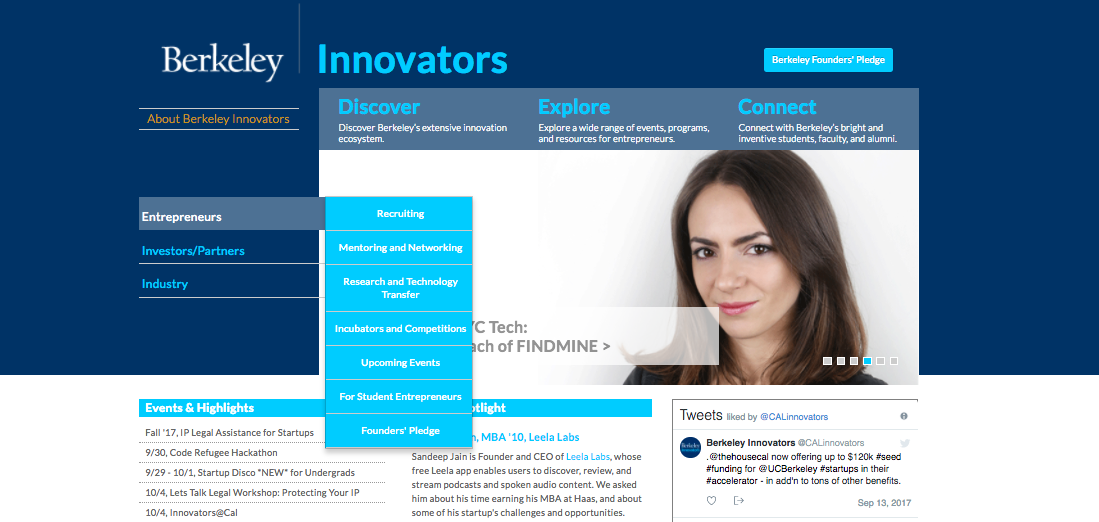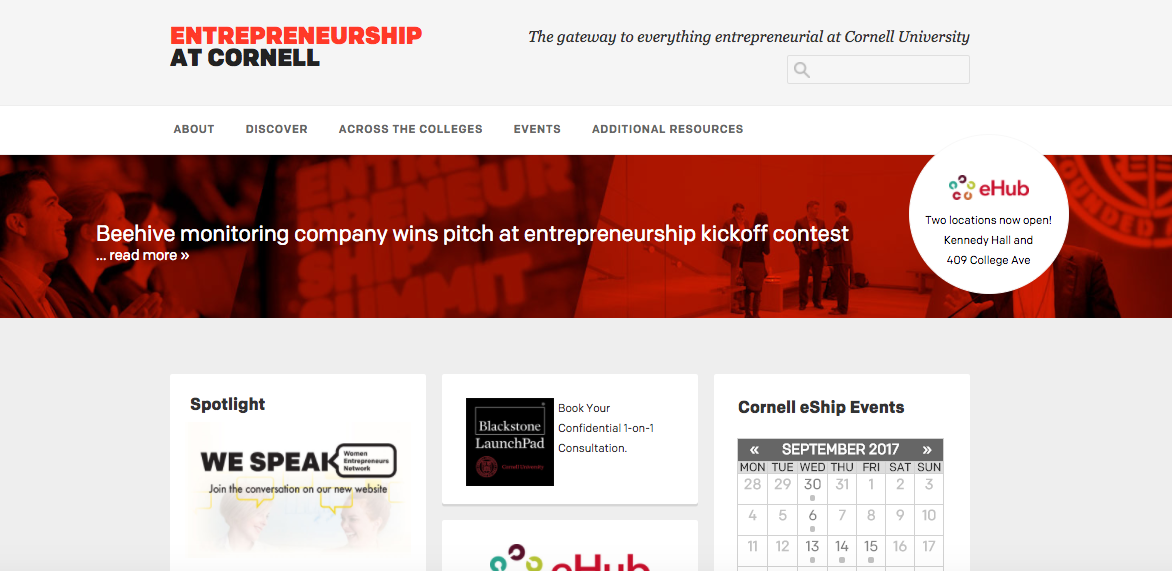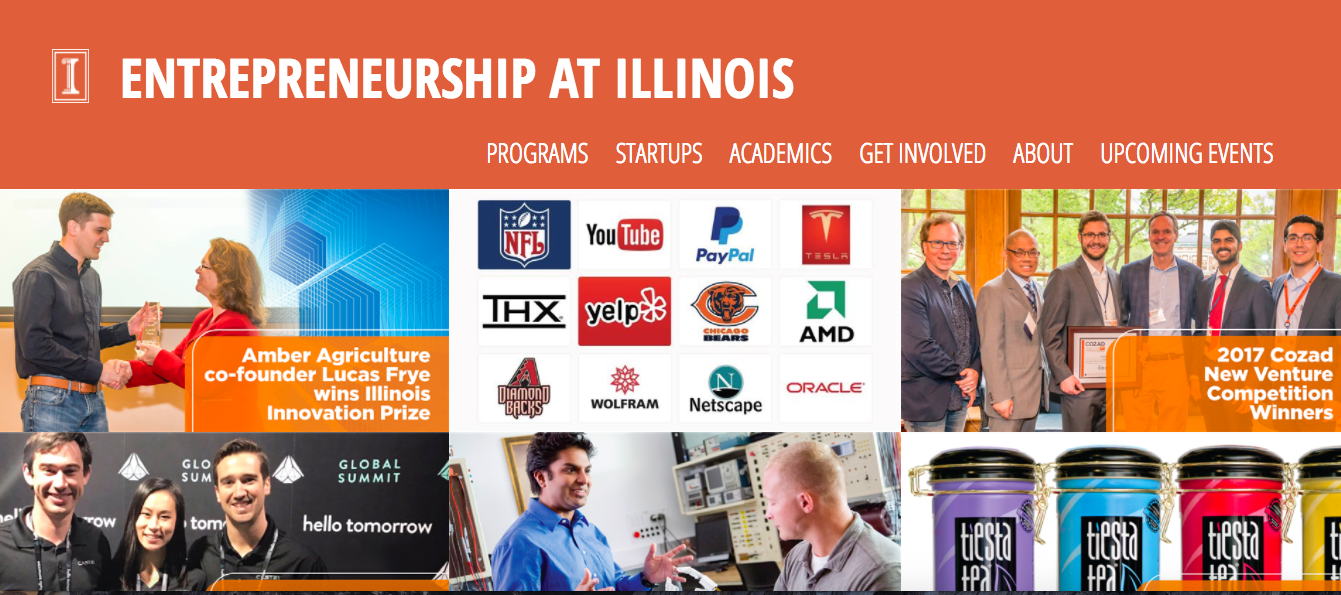Equip Your Fundraisers to Support Alumni Entrepreneurs— A Simple Roadmap
True story. “Fiona,” a major gifts fundraiser, was chatting with some colleagues in her university’s Office of Career Services. It came up that the CEO of a well-known startup wanted to speak at the school, but their schedule was full. The Career Services team was about to turn him down.
“Wait, what? No.”
“Well, we don’t have any room in the schedule, and all the meeting space outside the schedule is booked up.”
Fiona sprang into action. She knew of an occasional lecture series that showcased interesting leaders when they happened to be in town. She placed a call across campus. She looked up the size and funding of the startup, and knew from this information that they’d likely be hiring a lot of entry level employees. A big undergraduate crowd would be best.
It wasn’t always easy to deliver a crowd on short notice, so Fiona shot off an email to a student club in the same field. She asked about their interest in ‘co-sponsoring’ the talk in exchange for spreading the word through student channels. Other pieces began to fall into place. On-campus recruiting. T-shirt giveaway. Personal invites to key alumni. Private meeting.
A few weeks later, the CEO spoke to an overflow crowd as a delighted Fiona looked on, hoping there would be a leftover T-shirt for her.
Our universities are investing millions in entrepreneurship initiatives. From single courses to full-blown research centers, schools are responding to a rising tide of interest among students and alumni. This, in turn, contributes to the buzz around startup activity as the universities’ media operations celebrate the impact of these investments.
We all want to see our alumni entrepreneurs succeed. But does your team realize they can actually help alumni reach success? And is your team equipped to do that?
Supporting alumni entrepreneurs protects the investment we make in our startup-related programs. It increases engagement, and can increase philanthropic returns, especially if the school has a formal founders pledge program.
The Advancement teams are uniquely positioned to offer support. In the course of our work, we interact with every constituency and resource important to startup growth: students, faculty, program directors, investors, founders, execs, media, and so forth. Advancement teams touch every single node in the ecosystem.
Startups don’t only need money. If you can offer support on other needs they might have, you can still offer tremendous value. Of course, that means you must have a basic sense of what those other needs are, and how to address them.
Understand the startup lifecycle
I've talked elsewhere about a few startup lessons that helped me increase engagement with alumni entrepreneurs. It begins with empathy — a deep and active effort to understand a “user’s” needs, desires, motivations, and barriers. These concepts as they apply to startup folks will be different than those in law, finance, or medicine.
Since most alumni won’t appear on our fundraising radar until their companies are well past the startup stage, gift officers haven’t needed to develop an understanding of how startups work. This in turn, creates a gap in engagement — but also presents a significant opportunity.
Give your fundraisers the opportunity to understand the startup lifecycle. This includes the basics of venture creation, startup finance and stages, organizational dynamics, and venture capital economics. Each of these could be a course in itself, but a simple workshop on the basics can go a long way. Think of it like planned giving — your frontline fundraisers may not be experts in the field, but should know enough of the basic concepts to recognize key signals and refer alumni to the right campus resources.
This investment in the professional development of your team will pay off immediately in more successful outreach, at minimum. Contact me if you’ve done this and have a story to share, or want to think through how you might accomplish this for your team.
Understand the ecosystem and resources at your college
Once your team is grounded in the basics of the startup lifecycle, help them turn that new knowledge into engagement. Train fundraisers in the complete landscape of entrepreneurial activities and resources at your institution. This equips fundraisers to share relevant information, spark involvement, and become trusted partners for your entrepreneurial alumni.
Gift officers should have an easily-accessible and well-organized way to understand the activities related to innovation and entrepreneurship on your campus. These might include:
Academic assets
Competitions
Incubators
Entrepreneurship or Innovation Centers
Student clubs
Events
Apps, websites, and other content
Evaluate these activities not just for their value to the alumni innovation community, but also to the development pipeline. Also note where your fundraising team intersects — or could intersect — with these activities, and the impact of those interactions. I have a framework I use for this purpose, but a simple inventory is also a good place to start.
Many universities publish partial or complete inventories online. At UC Berkeley, my former team built the library at Innovators.Berkeley.edu, which organizes resources by constituent and desired outcome. The site was designed to both showcase the vibrant Berkeley ecosystem externally, and to internally support the education, outreach, engagement and stewardship activities of fundraisers. See below for a few examples of this asset.



Nurture a sense of creativity and resourcefulness
It's tougher to be tactical on this one, but it's the X factor in this whole process. At its heart, entrepreneurial thinking is about solving problems, marshalling resources, building relationships, and planning your actions. And while one can apply that mindset to creating and building a new business, we can also harness those core ideas in our work as fundraisers. In many ways, each donor relationship is a startup in itself. Encourage your team to learn from alumni entrepreneurs, and to creatively address the most common constraints fundraisers face (time, budget, access) in building these connections.
When you can only spend 15 minutes per quarter on a given alumnus in your portfolio, how do you maximize that impact and set up the next interaction? Can you find a small group with some common characteristic and serve them all at once? How do you keep a relationship moving, even if that forward motion is incremental or doesn't immediately result in a major gift? When it clicks for someone on your team, you'll see their rate of alumni entrepreneur engagement soar, and the depth of their relationships increase.
be patient—but keep moving forward
As an Advancement leader, you recognize that some part of your portfolio is a very long-term investment. The typical startup takes 5-8 years to exit. The typical tenure of a gift officer is less than two years, resulting in a focus on near-term gifts. Chances are, only a fraction of your entrepreneurs even get to that point because of the engagement gap described above.
If you engage entrepreneurs early in their venture careers, you stand a better chance to optimize your pool of possible donors. But you must sustain that relationship through two, three—even four alumni relations or gift officers. If at any point Advancement is unequipped to address the unique engagement patterns of entrepreneurs, there's risk their involvement will flatline.
If you elect to wait until an alumni entrepreneur has liquid assets before opening a relationship—probably amid strong competition from other causes and demands on their time—the road ahead will likely be much harder. By applying modest resources of time and training, you could carry these relationships from startup to IPO, and in the process realize that your entrepreneurial alumni pool is larger and more philanthropic than you imagined.
“We all want to see our alumni entrepreneurs succeed. But does your team realize they can actually help alumni reach success? And is your team equipped to do that? ”










